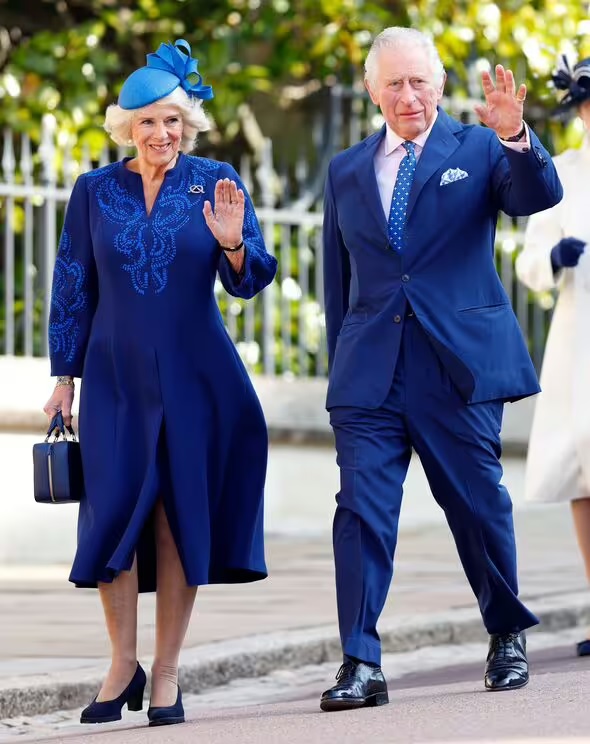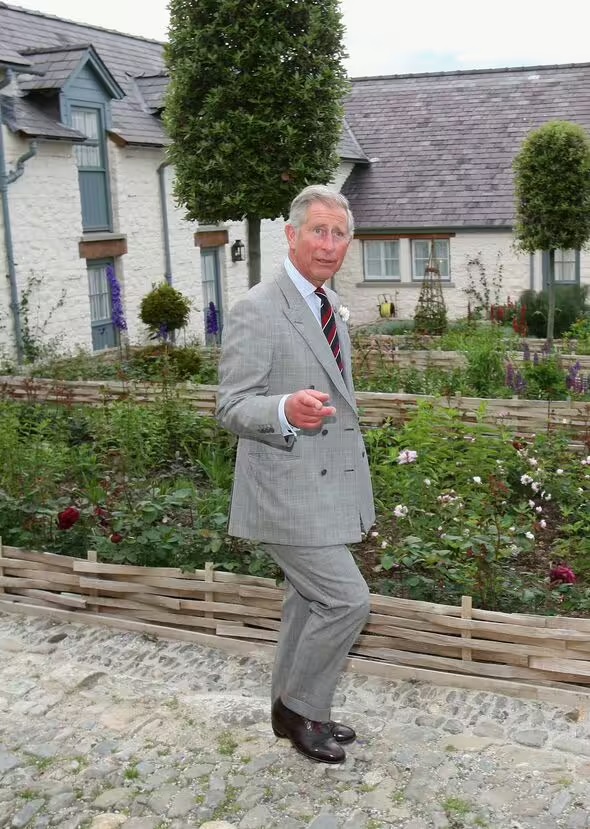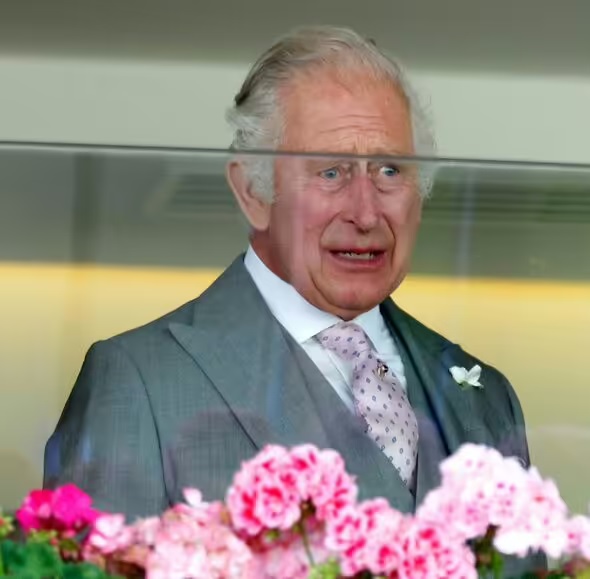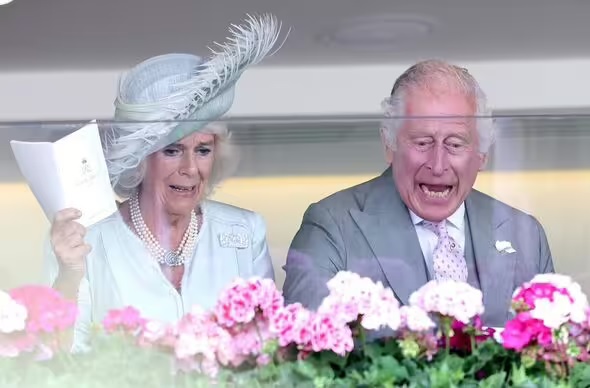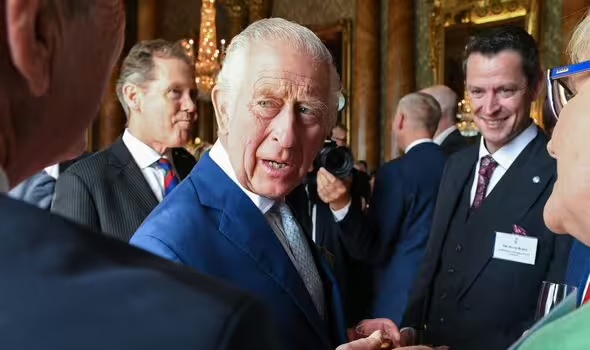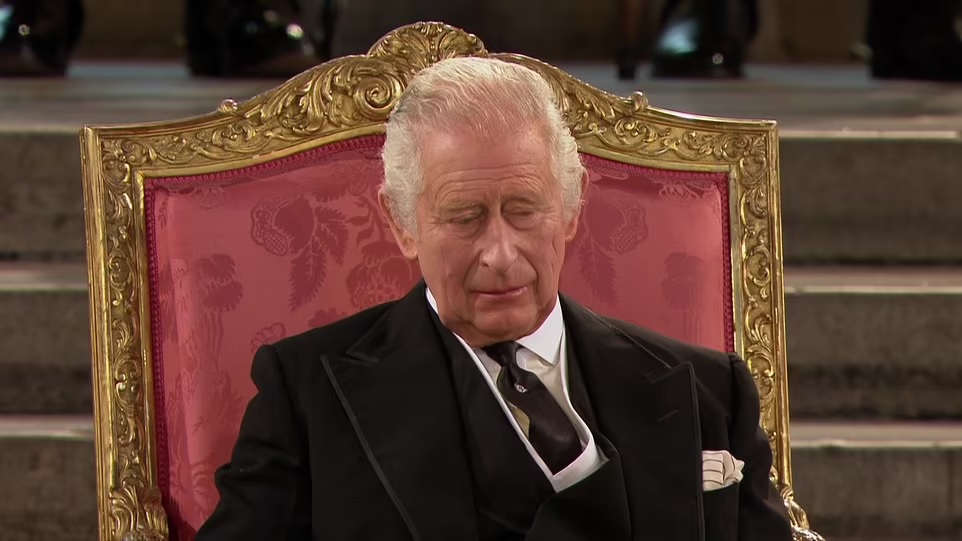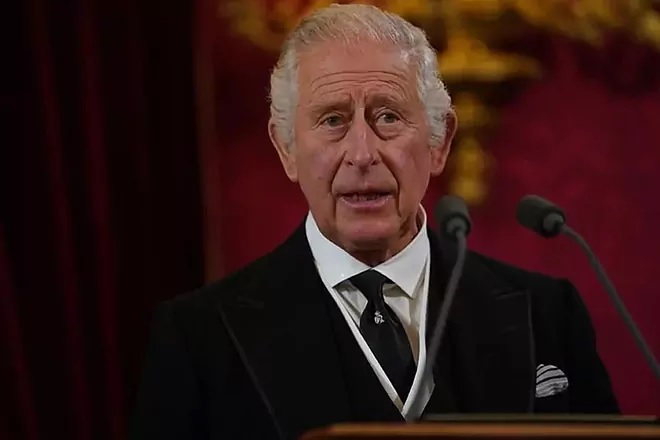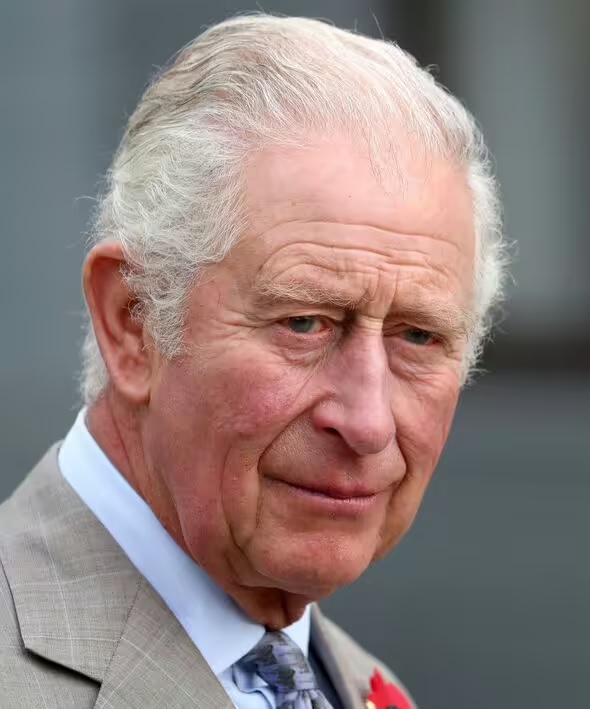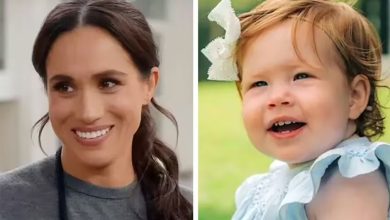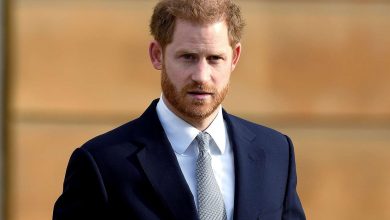King Charles reveals ‘biggest regret’ about his coronation

King Charles named his ‘biggest regret’ about his coronation weekend – and it had nothing to do with the ceremony. King Charles has revealed his biggest regret about his Coronation weekend was being too far away to see the performers at the Windsor Castle concert. The 74-year-old monarch told people involved in organising the event, which starred Lionel Richie, Take That and a host of other artists, that he wished he had been sitting closer or had taken his binoculars. He and Queen Camilla were joined by Princess Anne and Sophie, the Duchess of Edinburgh, to host a Buckingham Palace reception today/yesterday to thank organisers of the Coronation weekend in May and events following the death of Queen Elizabeth II last year.
There was a reminder of a moment on Coronation Day that amused countless viewers when the royal party met Clare Balding who did the BBC commentary for the processions from Buckingham Palace to Westminster Abbey and back again. “I managed to say – which is a perfectly acceptable horsey phrase – that the Princess Royal had been very quickly mounted, and joined the procession, “Ms Balding, 52, recalled. “I didn’t bat an eyelid at that. I didn’t even realise. When I got home, my partner Alice said, ‘You seem to have caused a bit of a stir!’ But that’s just the sort of thing that would make them [the Royal Family] all laugh.”
Over 6,000 members of the Armed Forces took part in the Coronation in May, with the estimated cost of the service reaching £50-£100 million. However the bank holiday weekend did boost British hospitality by around £1 billion, as pubs reportedly pulled around 62 million pints to their delighted punters during the celebration. Buckingham Palace noted that the King wanted a more modern and toned-down ceremony to reflect his new era, stating: “The Coronation will reflect the monarch’s role today and look towards the future, while being rooted in long-standing traditions and pageantry.” At the palace reception the King and the other royals met everyone from composers and florists to support staff and the military.
The King spoke to the team from the Royal Borough of Windsor and Maidenhead about the huge logistical effort of organising the concert in the grounds of Windsor Castle on the Sunday evening after the Coronation. Neil Walter, who was in charge of parking, said the King told him how he was seated so far away he could not see what was happening on the stage. “He said next time he would like to be closer – or bring his binoculars,” Mr Walter said. Debbie Wiseman, one of 12 composers commissioned to write music for the Coronation – she wrote two Alleluias, one of which was performed by the Ascension Choir – said after meeting the King that she had also written music marking the death of the late Queen.
She said: “I wrote the music for the 10 days of national mourning for the BBC. I wrote that five years earlier, before the Queen [died]. So that was bitter-sweet. “Subsequently I was asked to write the music for the Coronation. So there were these two incredible events, one after the other. Writing the music for the Queen’s funeral was challenging because when I was writing it I had just been with at her 90th birthday celebration at Windsor, when she was in fantastic health, on fine form and looking amazing – and there was I thinking about the day that she might pass away. “I wanted it to be a tribute to her, something that was warm, something that remembered her with great affection. And was not sad, because she had this incredible life. It was a joyful piece.
“We had to do it in the utmost secrecy. We went into the studio with the BBC Concert Orchestra knowing that the Queen was fit and well, knowing that we had to sign these non-disclosure agreements, and record the music for our late Queen’s funeral. It was a very surreal thing to do, and also a huge privilege. “For the Coronation, the King was so involved with everything. He wanted the gospel choir that I wrote the music for. He wanted it to be the best possible musical showcase it could be. And oh my goodness, it really did do that.”
Shane Connolly, the florist who did the flowers for the Coronation, said the King and Queen said later that they had “loved” the flowers. He added: “They appreciated every single stem, and the fact that it was given by British growers and British gardeners… it meant so much. I think it meant the world to them. One of the few things in the Abbey that was about them as people were the flowers. They were incredibly pleased.” Ugbana Oyet, Serjeant-at-Arms of the House of Commons, is responsible for ceremonial events there and helped organise the Queen’s lying in state at Westminster Hall. He said: “I spent a huge amount of time in Westminster Hall where the Queen was lying in state.
“People came in at the top from St Stephen’s (Hall) and there was awe in their faces, their jaws dropped and they paused. “Then they came slowly down the steps past the catafalque, paid their respects and by time they got to the north doors to leave the atmosphere had changed and they were chatting to each other, and by time they got to the gate it was almost a celebratory moment.” Jenny Collier of London Scribes, one of two calligraphers who wrote the names on the invitations to the Coronation, said: “I found it deeply humbling writing all the world leaders’ names, knowing that everybody would come together for this incredible occasion, and they would really reinforce positive relationships.
“London Scribes probably spent 10 solid days over a few weeks writing them all. I really enjoyed – I would do it again!” The military were similarly involved in the late Queen’s state funeral on September 19 last year, including 175 different personnel from across the Commonwealth. The gun carriage was pulled by 98 Royal Navy sailors, with another 40 marching behind as brakes, in a display not seen since the funeral of Winston Churchill in 1965. Many were on hand to assist during the Queen’s lying-in-state, when the queue to see her coffin stretched as long as 10 miles as people waited up to 24 hours to pay their respects.
On Wednesday night the King and Queen attended a dinner at Mansion House to recognise the work of the City of London civic institutions and Livery Companies – the financial district’s ancient and modern trade guilds. Shortly after his arrival Charles was presented with the Pearl Sword in a ceremony which goes back to the time of William III in 1689, with the sword originally thought to have been presented to the City of London by Queen Elizabeth I in 1571. The King also made a speech in which he expressed a need for tolerance and understanding in our society and our world, as the conflict between Israel and Gaza rages on.
